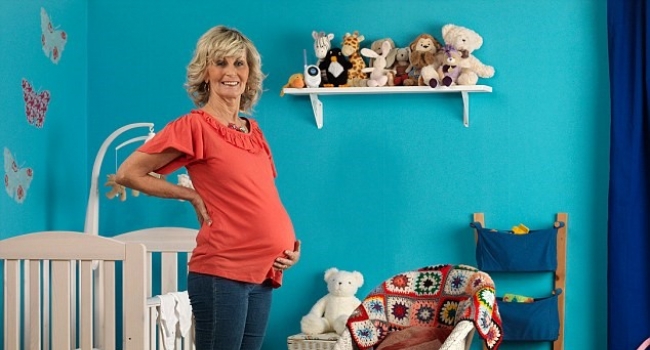- Latest news▼
-
10:29, May 3 Scientists discover cell responsible for repairing damaged liver tissue

-
20:17, May 2 NBR: low to moderate intensity exercise protects against depression

-
18:28, May 2 Sixth Armenian International Ophthalmological Conference will be held on 17-19 May

-
16:11, May 2 ВJN: High-fat foods may increase the risk of heart attack and stroke at a young age

-
14:16, May 2 Patterns: Neural network created that models outcome of various patient therapy methods

-
12:05, May 2 Armenia joins Council of Europe convention on protection of patients' rights

-
14:27, May 1 Journal of Neuroscience: Sluggishness of the elderly is due to greater use of calories, research finds

-
10:26, May 1 AstraZeneca admits its Covid vaccine can cause thrombosis

-
19:31, April 30 Scientists calculated how much time per day you should be sitting, standing and sleeping

-
17:37, April 30 The Conversation: Keeping bread in the fridge improves its health benefits

-
14:30, April 30 Frontiers in Molecular Biosciences: Researchers use AI to identify 191 new destructive viruses

-
08:38, April 30 The Guardian: First personalized cancer vaccine developed

-
23:55, April 29 Ketodiet improved the condition of patients with schizophrenia and bipolar disorder

-
19:47, April 29 In 64% of COVID-19 survivors, the condition worsens after one year

-
15:41, April 29 ECU: body tilt in patients after stroke was found to be curable

All materials
Infants born to older mothers are more intelligent and successful

Older mothers are more likely to give birth to clever children than those in their twenties, new research reveals.
Delayed pregnancies are usually made by women who have instead decided to focus on establishing themselves a career.
And this has a positive effect when it comes to start a family - giving their youngsters the best possible chance of going to university.
The findings are a stark contrast to research from the 1970s which found the complete opposite.
Previously, the majority of women giving birth in their late 30s were having their third of fourth child.
But this has now changed, as women are waiting until they reach the heights of their careers before choosing to start a family.
The proportion of women over 40 giving birth in England and Wales has trebled in the last 30 years, from 4.9 per 1,000 in 1984 to 14.7 per 1,000 in 2014.
And this allows them to give more resources and attention to children, perhaps explaining their raised levels of intelligence, experts claim.
Researchers analysed data from three studies of children's development that were conducted in 1958, 1970 and 2001.
Their ability to think, remember, pay attention and read were tested when they were 10/11 years old.
In the two earlier studies, children born to mothers aged 25 to 29 had the highest cognitive ability, the researchers found.
This was compared to women who were aged between 35 and 39 when they gave birth in the study published in the International Journal of Epidemiology.
However, in 2001 the findings were reversed, the London School of Economics and Max Planck Institute for Demographic Research team found.
But the researchers warned that the sample was smaller.
The researchers said: 'Older mothers today tend to be more advantaged than younger mothers – for example, they are well educated, are less likely to smoke during pregnancy and are established in professional occupations.
'This was not necessarily true in the past.'
Study author Dr Alice Goisis of the LSE, said: 'Our research is the first to look at how the cognitive abilities of children born to older mothers have changed over time and what might be responsible for this shift.
'It is essential to better understand how these children are doing given that, since the 1980s, there has been a significant increase in the average age of women having their first child in industrialised countries.
'Cognitive ability is important in and of itself but also because it is a strong predictor of how children fare in later life – in terms of their educational attainment, their occupation and their health.'
Follow NEWS.am Medicine on Facebook and Twitter
- Video
- Event calendar
- Archive
- Most read
month
week
day
- ESCMID: New method of purifying the air with ultraviolet light could protect world from new pandemic 1479
- 3 women diagnosed with HIV for first time after getting ‘beauty injections’ in US 1179
- In 64% of COVID-19 survivors, the condition worsens after one year 983
- Ketodiet improved the condition of patients with schizophrenia and bipolar disorder 946
- 362 cases of measles recorded in Armenia so far in 2024 879
- The Guardian: First personalized cancer vaccine developed 827
- ECU: body tilt in patients after stroke was found to be curable 821
- Scientists calculated how much time per day you should be sitting, standing and sleeping 794
- Blood: blood cancer drugs may be useful in rheumatoid arthritis 788
- The Conversation: Keeping bread in the fridge improves its health benefits 775
- Frontiers in Molecular Biosciences: Researchers use AI to identify 191 new destructive viruses 764
- AstraZeneca admits its Covid vaccine can cause thrombosis 737
- Journal of Neuroscience: Sluggishness of the elderly is due to greater use of calories, research finds 619
- Sixth Armenian International Ophthalmological Conference will be held on 17-19 May 431
- Armenia joins Council of Europe convention on protection of patients' rights 429
- Find us on Facebook
- Poll





